The Nvidia GeForce RTX 5070 Ti: A Budget-Friendly 4K Champion?
The Nvidia GeForce RTX 5090's underwhelming generational leap and hefty price tag left many wanting. The RTX 5070 Ti, however, offers a more compelling proposition. While not drastically faster than its predecessor, its significantly lower price point makes it the most accessible Blackwell architecture card, especially for those on a budget.
At its $749 MSRP, the RTX 5070 Ti excels as a 4K graphics card, effectively overshadowing the more expensive RTX 5080 (provided you can find either card at its listed price). It's crucial to note that review units, like the MSI aftermarket model tested ($1099), significantly inflate the cost, surpassing the RTX 5080's $999 price. But at its base price, it's a strong contender for most users, particularly 4K gamers.
Purchasing Guide
The Nvidia GeForce RTX 5070 Ti launched February 20, 2025, with a starting price of $749. However, expect considerable price variation across different models. While excellent value at $749, its appeal diminishes as the price approaches that of the RTX 5080.
Nvidia GeForce RTX 5070 Ti – Images
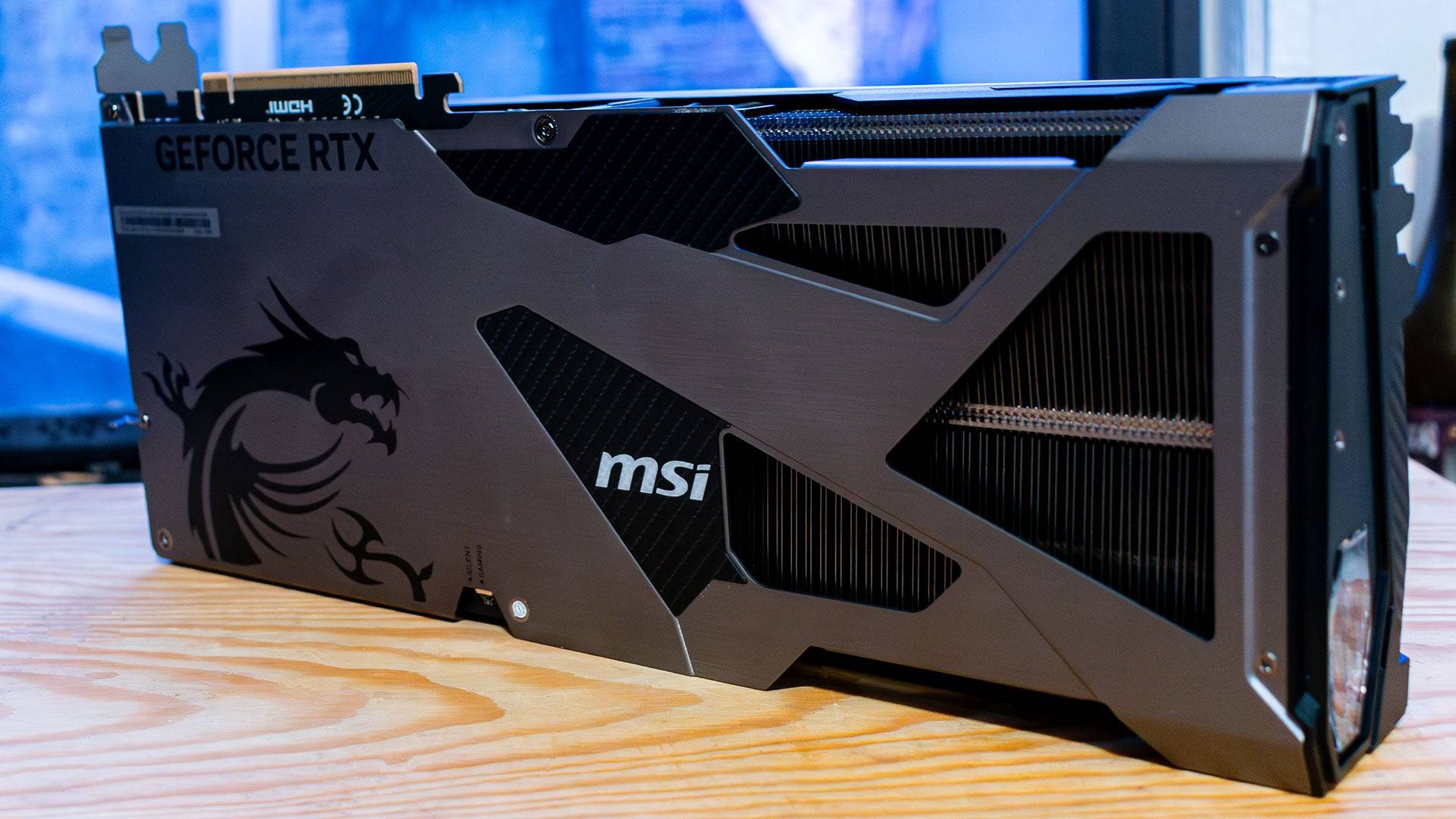
 6 Images
6 Images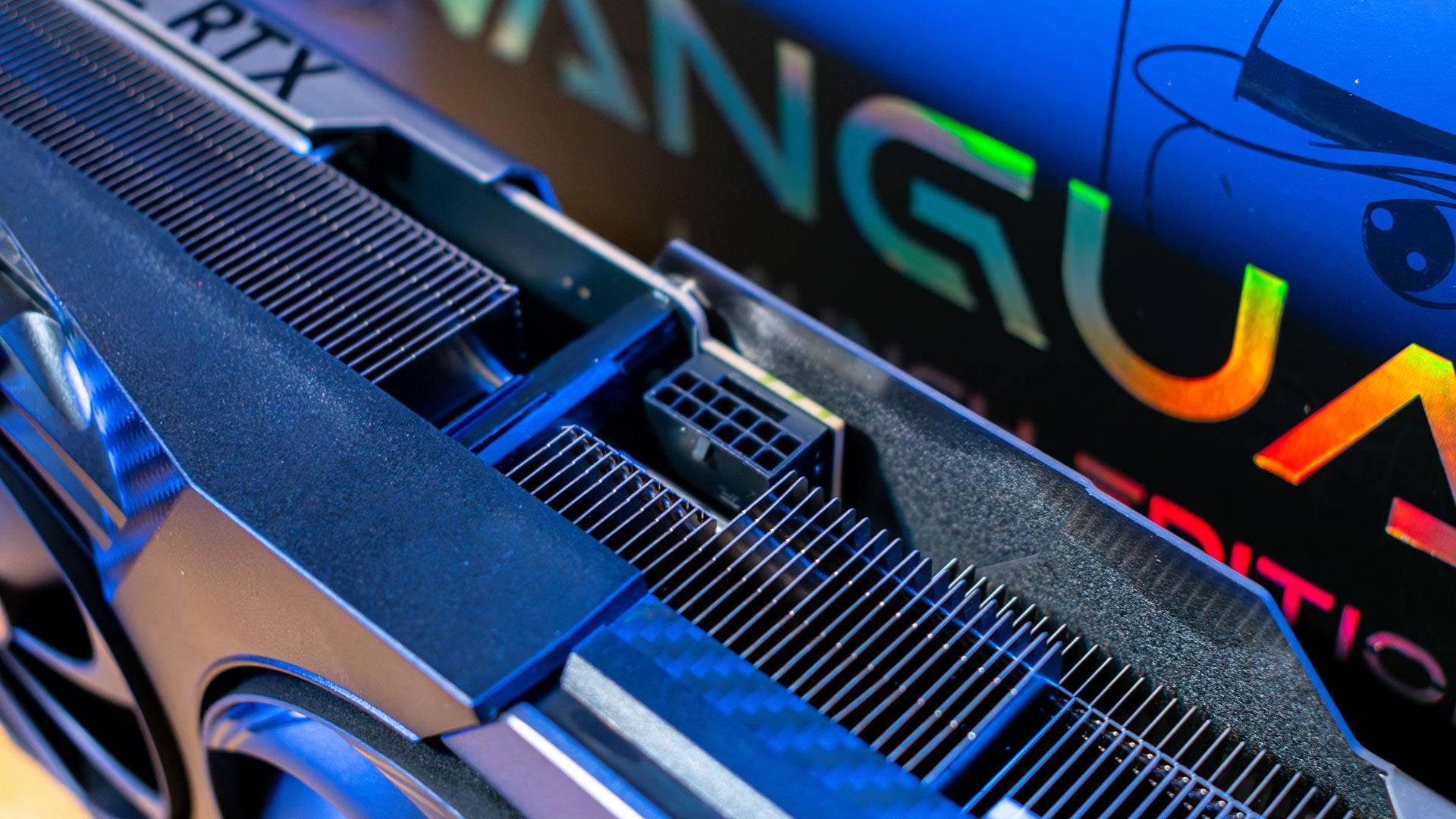
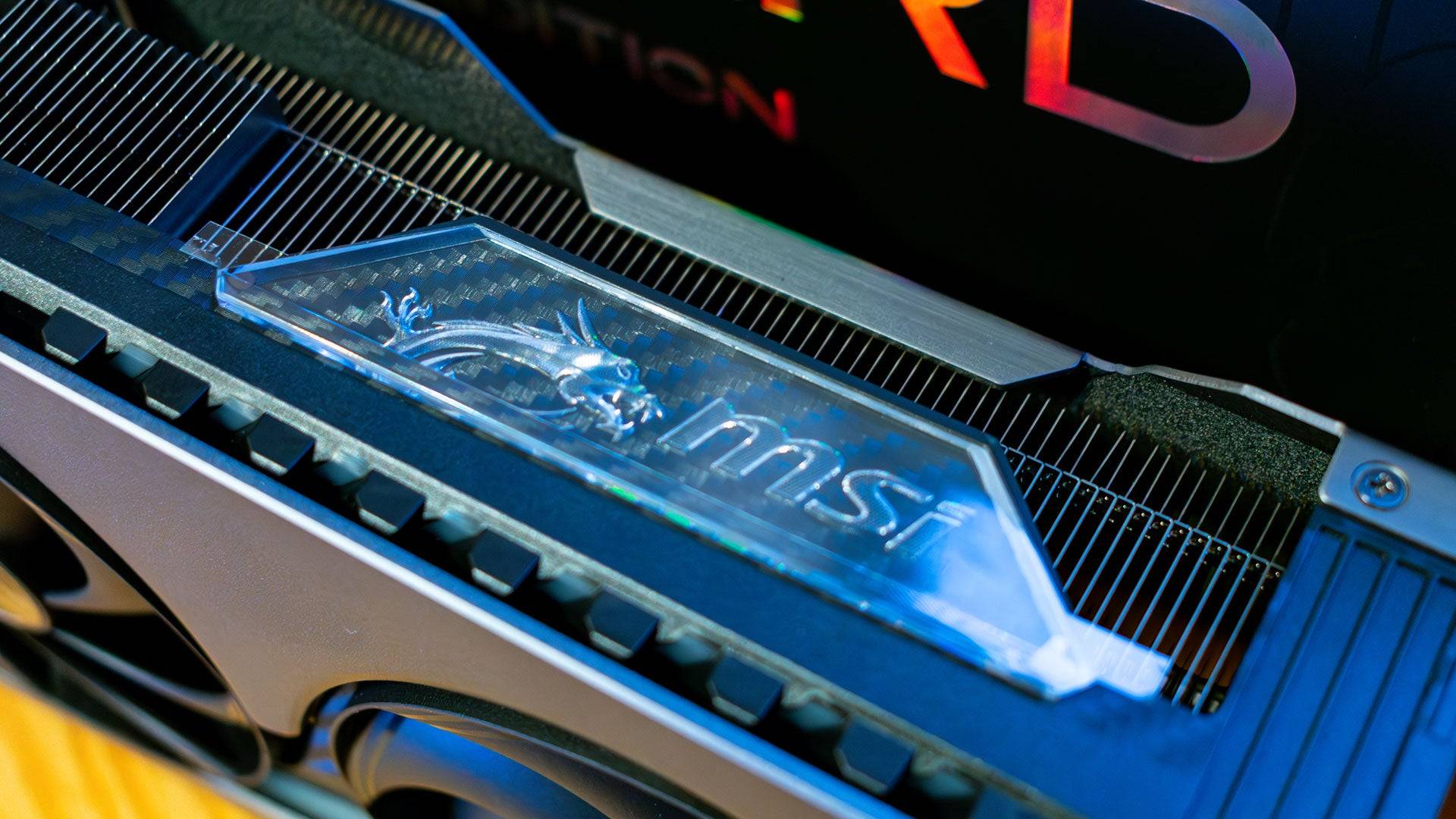


Specs and Features
The RTX 5070 Ti is the third Blackwell architecture card. Initially designed for AI supercomputers, Nvidia adapted it for gaming GPUs, retaining a strong AI focus.
Sharing the GB203 GPU with the RTX 5080, it features 70 Streaming Multiprocessors (SMs), 8960 CUDA cores, 70 RT cores, and 280 Tensor Cores (14 SMs disabled compared to the 5080). It also boasts 16GB of GDDR7 RAM, albeit slightly slower than the 5080. The Tensor Cores are key, leveraging AI upscaling and frame generation.
A new AI Management Processor (AMP) efficiently manages workload distribution across the GPU, a task previously handled by the CPU. This significantly boosts DLSS and frame generation efficiency.
DLSS 4 utilizes a Transformer model instead of a CNN, enhancing image quality and reducing artifacts. It also introduces Multi-Frame Generation (MFG), generating up to 3 frames per rendered frame, potentially quadrupling frame rates. Increased latency is mitigated by Nvidia Reflex.
With a 300W TDP, it's comparable to the RTX 4070 Ti and 4070 Ti Super. Nvidia recommends a 750W PSU, but an 850W is safer, especially with high-end models.

DLSS 4: Is It Worth It?
While faster than its predecessor, DLSS 4, particularly MFG, is the RTX 5070 Ti's main selling point. High refresh rate monitors benefit most, though latency improvements are not dramatic.
MFG analyzes rendered frames and game engine motion data to predict subsequent frames, generating new ones via AI. Unlike previous generations generating one frame, MFG generates up to three. While a 4x frame rate increase is theoretical, real-world gains are usually lower. Higher frame rates lead to more accurate predictions and less latency.
Testing in Cyberpunk 2077 and Star Wars Outlaws showed frame rate increases but with varying latency changes. While smoother gameplay is achieved, responsiveness isn't drastically improved. Low initial frame rates can lead to noticeable lag and artifacts. The RTX 5070 Ti avoids this issue even at 4K.
Nvidia GeForce RTX 5070 Ti – Benchmarks
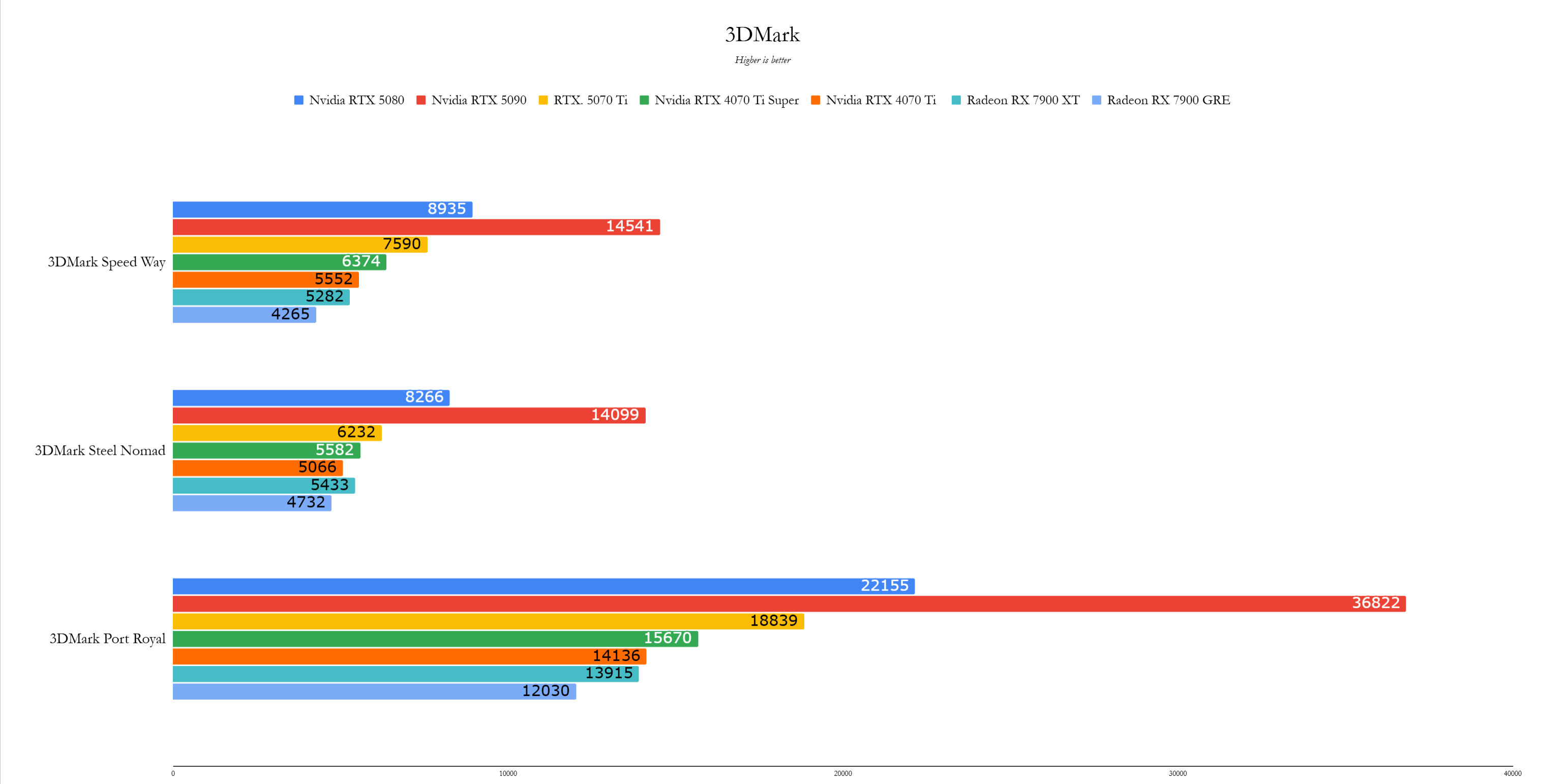
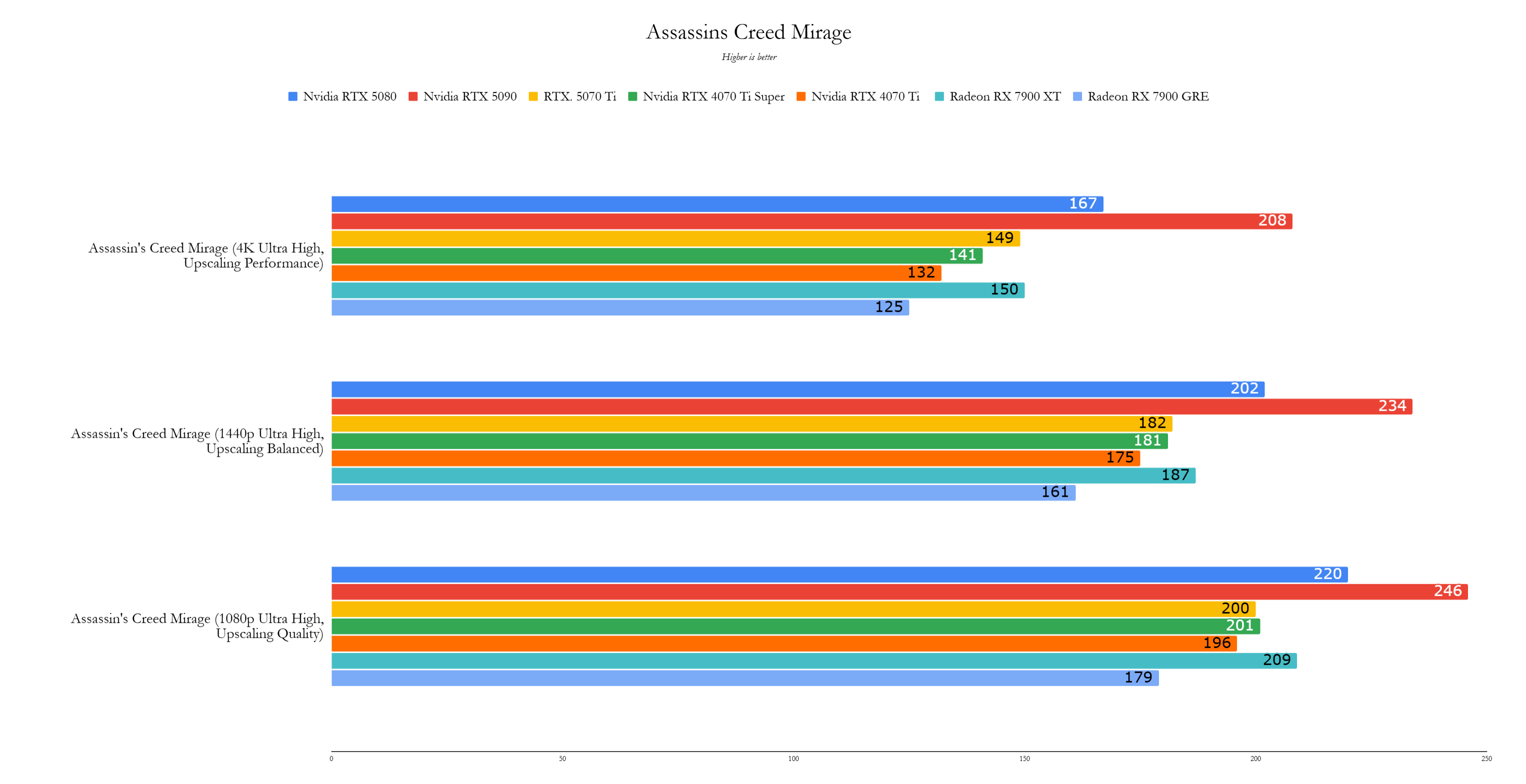 12 Images
12 Images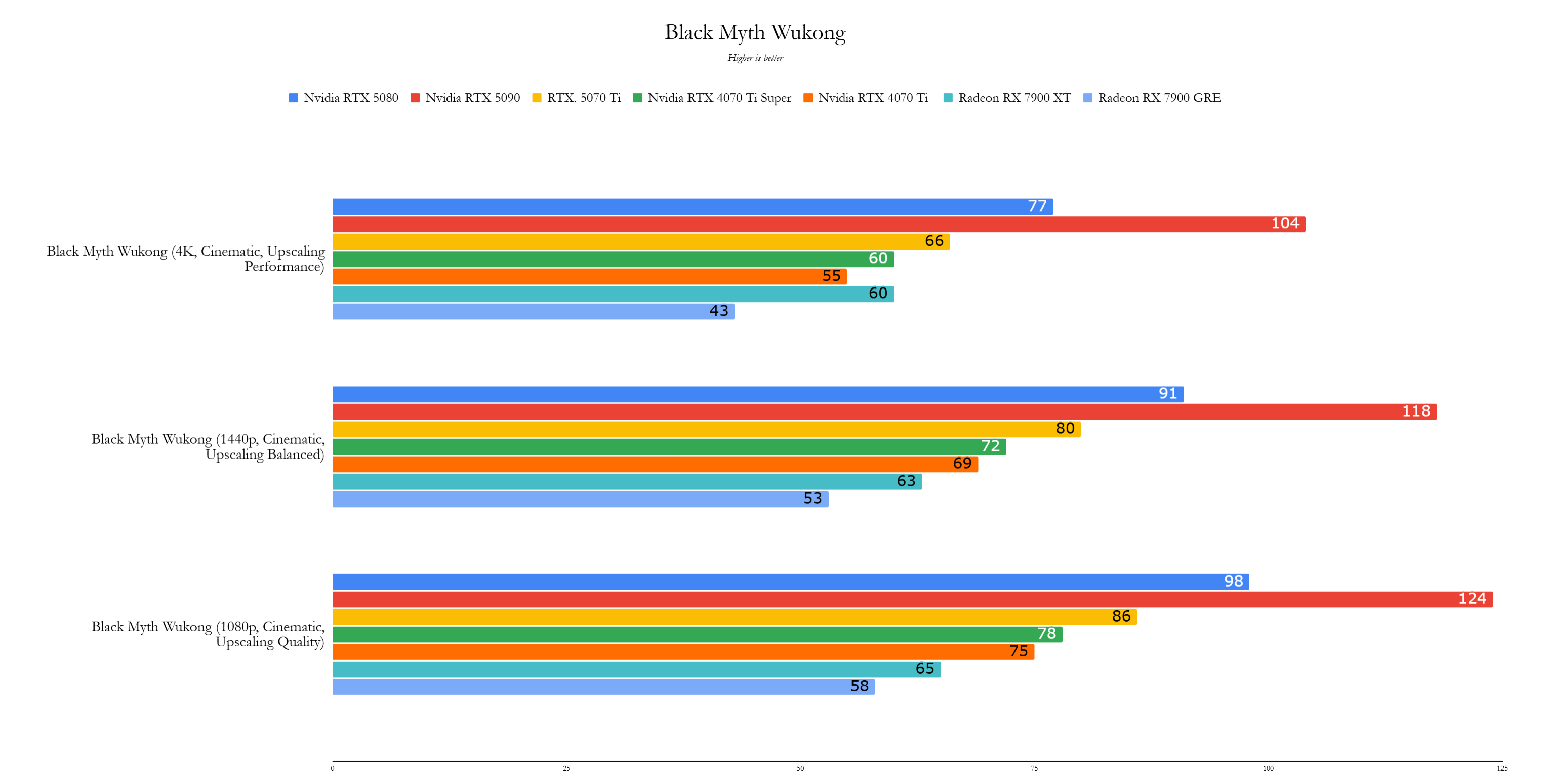
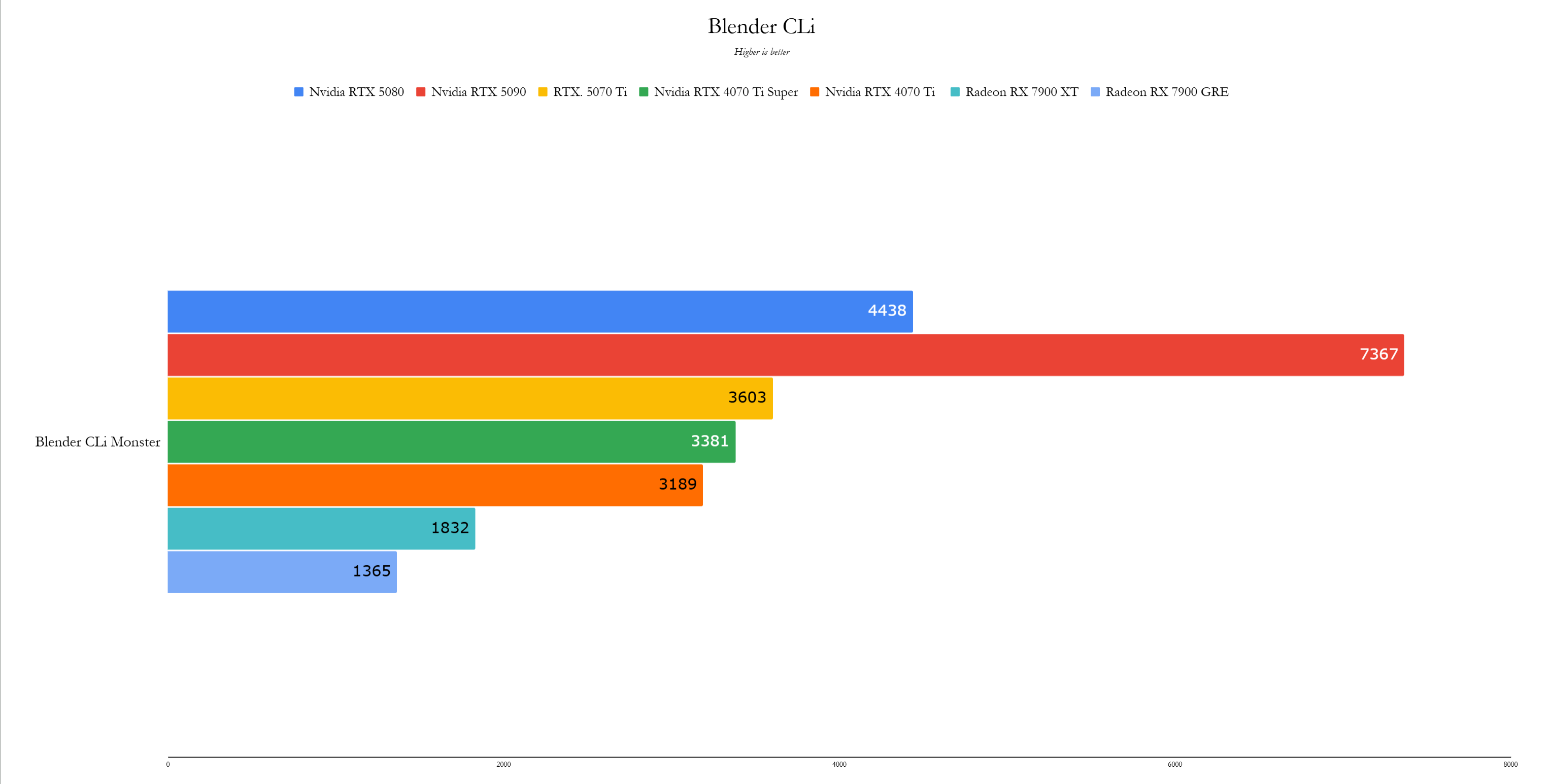
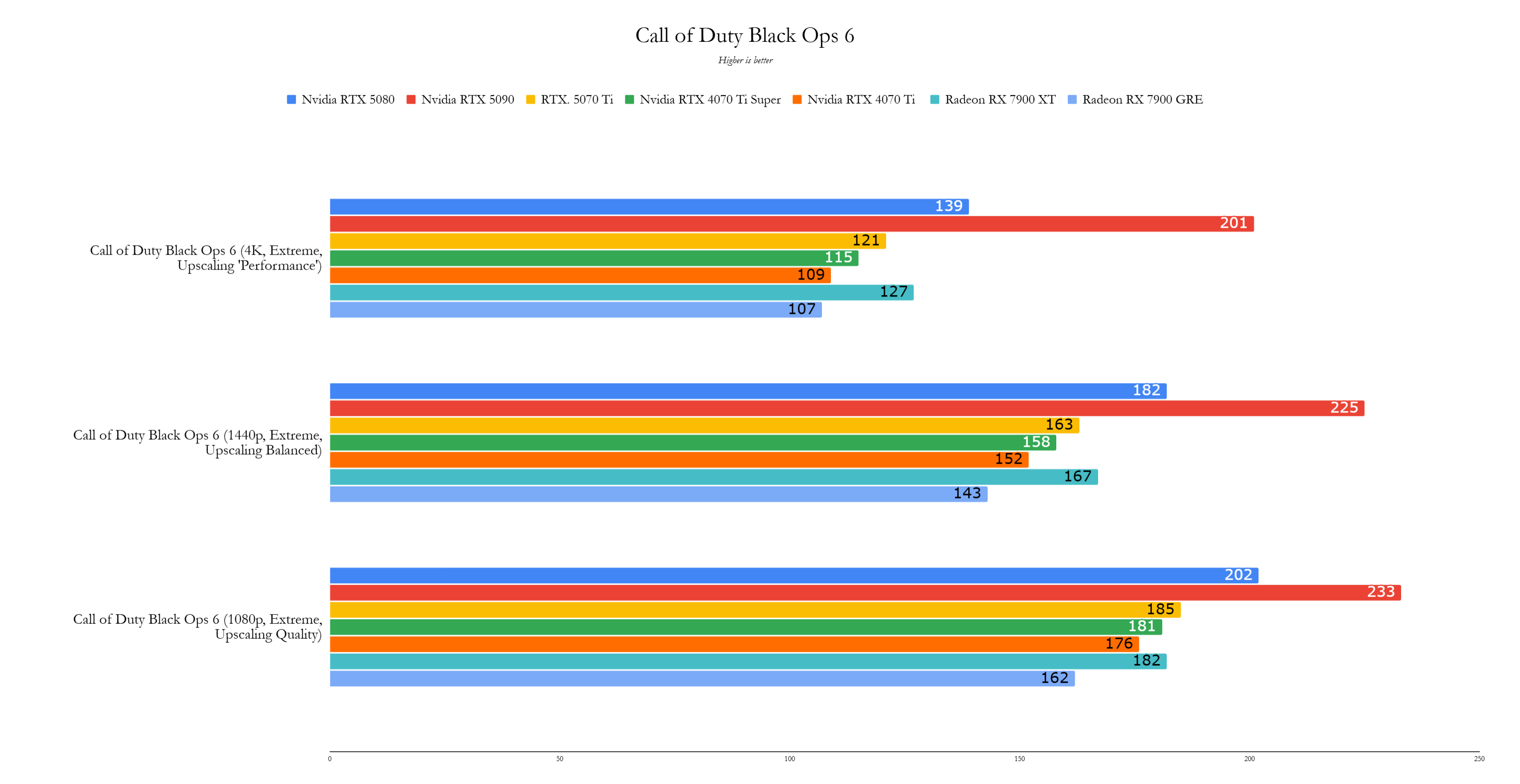
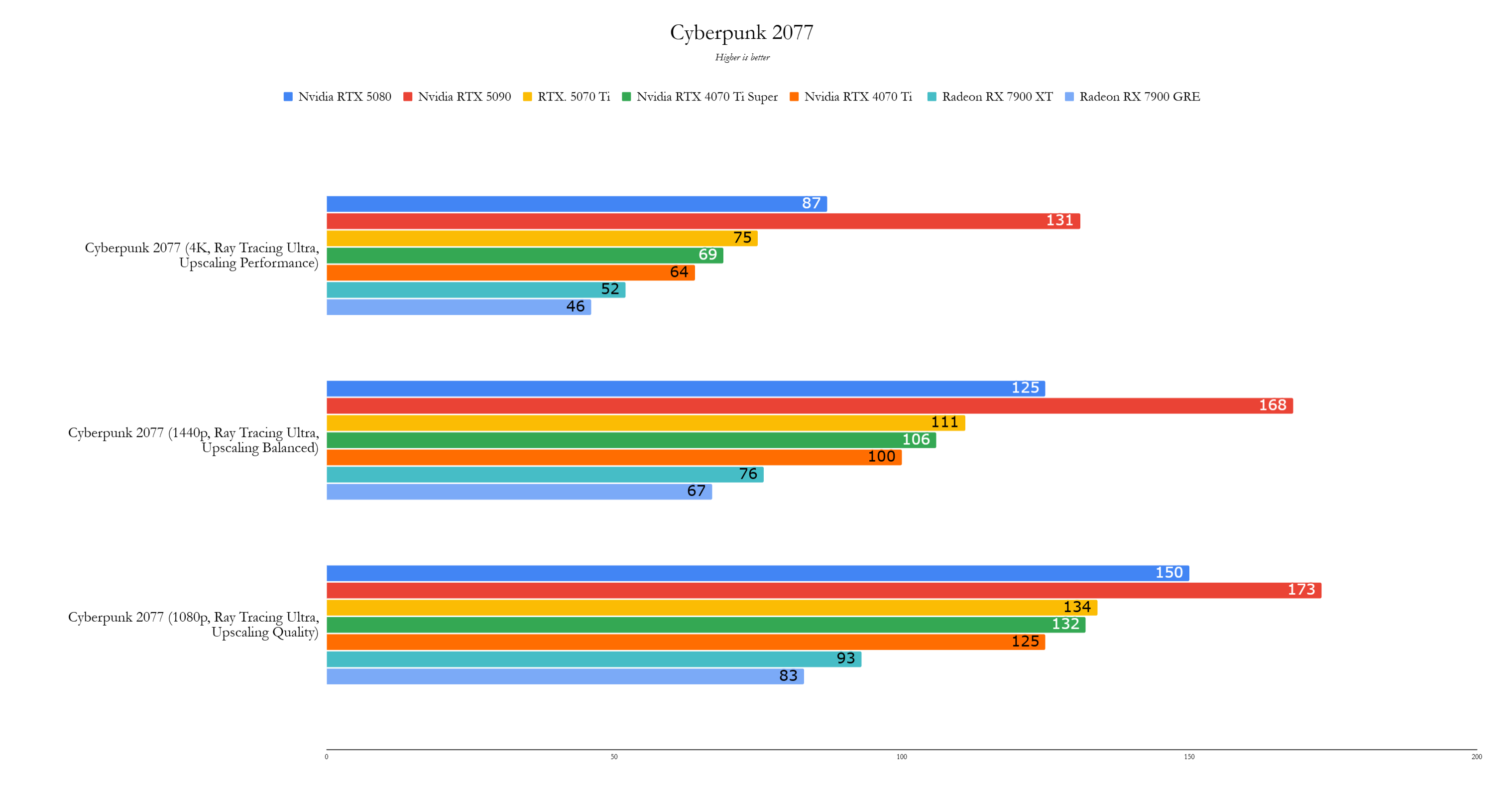
Performance
At 4K, the RTX 5070 Ti is approximately 11% faster than the RTX 4070 Ti Super and 21% faster than the RTX 4070 Ti. This surpasses the RTX 5080's generational improvement, making it the best value card in the 5000 series. It consistently exceeded 60fps at 4K in demanding titles.
Testing was conducted on a system with an AMD Ryzen 7 9800X3D CPU, Asus ROG Crosshair X870E Hero motherboard, 32GB G.Skill Trident Z5 Neo RAM, 4TB Samsung 990 Pro SSD, and Asus ROG Ryujin III 360 CPU cooler. The MSI Vanguard Edition was tested at stock settings.
Games were tested with the latest drivers (Game Ready Driver 572.42 for Nvidia cards except the 5070 Ti, which used a pre-release driver; Adrenalin 24.12.1 for AMD cards). Frame generation and upscaling were disabled or used appropriately for each card.
Benchmarks showed significant performance gains in 3DMark, exceeding the RTX 4070 Ti and 4070 Ti Super. Game performance varied, with some titles showing smaller generational leaps. However, the RTX 5070 Ti consistently delivered playable frame rates at 4K, even in highly demanding games.
Conclusion
The Nvidia GeForce RTX 5070 Ti, at its MSRP of $749, is a compelling 4K graphics card offering excellent value. It delivers a noticeable performance improvement over its predecessor at a lower price. While higher-priced models exist, the base model provides a strong argument for those seeking a capable 4K experience without breaking the bank.








